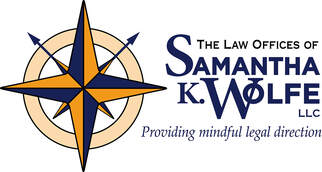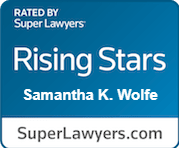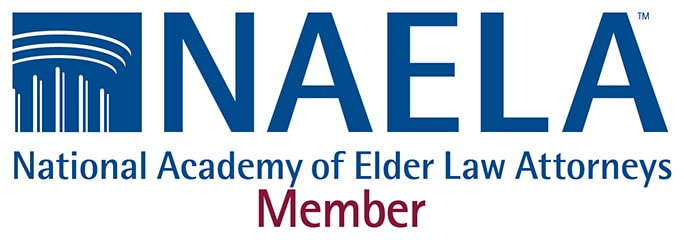0 Comments
 William "Bill" McCann, Senior Transition Specialist with PenMar Senior Soluntions, LLC. PenMar Senior Solutions, LLC is a company that specializes in buying homes in Franklin & Adams County "as-is" so you will never have to make a single repair, pay fees, or realtor commissions. They never ask you to make costly repairs or pay any fees. They cover all of the closing costs, and since they are not realtors so there are never any commissions to pay. During a recent interview with Bill, Samantha had asked Bill to give a little more detail as to what his business has to offer and time frame on which it takes to complete the home sell/buying process.
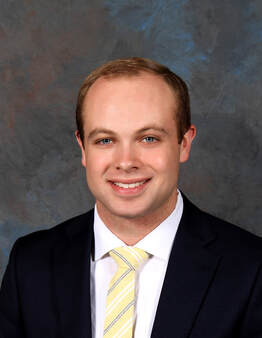 Kaleb Hurley, licensed auctioneer and realtor with Hurley Auctions. During this interview, Samantha and Kaleb discuss how an auction can be a beneficial way to handle personal property and real estate. Kaleb outlines the auction advantages compared to a traditional sale of real estate. Kaleb also highlights what personal property items are hot right now in the auction world. To view the interview in its entirety please click on the link or visit our YouTube channel. https://youtu.be/nz45rxOzXkw. My name is Kaleb Hurley, and I grew up in Franklin County PA. I grew up on a small farm raising beef cattle which taught me how to work hard. I am an active member in The Church of Jesus Christ of Latter-Day Saints and served a two-year mission trip to Paraguay from 2018-2020. I was married in 2021 to my wife Kara and we now have a little boy named Hal. I specialize in real estate auctions and sales. Qualifications • Certified Auctioneers Institute Candidate • Studied Business and Agriculture at Brigham Young University Idaho • Licensed Auctioneer • Licensed Realtor • Performed Two Year Auctioneer Apprenticeship • Member of the National Auctioneer Association • Member of the Pennsylvania Auctioneers Association • Member of National Association of Realtors Hurley Auctions contact information: Website: www.hurleyauctions.com Address: 2800 Buchanan Trail E, Greencastle, PA 17225 Contact Number: (717) 591-9100 Email: info@hurleyauctions.com The Law Offices of Samantha K. Wolfe, LLC: Providing Mindful Legal Direction for You and Your Future Generations. We offer FREE initial consultations so contact our office at (717) 655-2676 to schedule an appointment today! We are located at 20 East Sixth Street, Suite 206, Waynesboro, PA 17268. 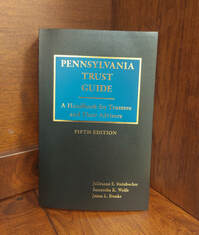 The new Pennsylvania Trust Guide 5th Edition has been released! Ours truly, Samantha K. Wolfe has contributed information once again. Additionally, Samantha co-authored a book with eighteen other leading elder care attorneys from across the nation titled "Protect Your Legacy! What You Really Need to Know for the Second Half of Life". Samantha co-authored the 2016, 2017, 2018, 2020, 2021, and 2022 supplements to the Pennsylvania Trust Guide (Editions IV and V) published by George T. Bisel Company, Co., Inc. To order the 5th Edition of the PA Trust Guide visit https://bisel.com/products/pennsylvania-trust-guide To learn more about The Law Offices of Samantha K. Wolfe, LLC visit our website at www.skwlawoffice.com.  Michael Lynch Certified Financial Planning at Lynch Investment Planning Michael Lynch Certified Financial Planning at Lynch Investment Planning Michael Lynch, certified financial planner at Lynch Investment Planning. During this interview, Samantha and Michael discuss the importance of having a certified financial planner. Michael gives tips on how to choose a financial advisor. Michael encourages clients to find an advisor that you trust and have confidence in since it will be an ongoing relationship. Michael encourages clients to ask the certified financial planner questions pertaining to their credentials. Samantha and Michael discuss how an attorney and financial advisor should collaborate during the estate planning process and the importance of beneficiary designations as part of the estate planning process. Michael also discusses how financial advisors get paid for the services they offer clients. Mike joined Lynch Investment Planning after spending over 7 years as an active-duty Army officer. Mike held various positions in the Army, including Apache helicopter pilot, aviation company commander, human resources director, and recruiting commander. Throughout all of these roles, Mike was a leader of hundreds of soldiers and spent countless hours counseling them and their families through personal and financial decision points. He chose to enter the financial planning profession to continue to serve families and their financial needs. He brings a breadth of experience in strategic planning, complex problem solving, and process-based solutions to the firm. He believes in the Army’s core value of selfless service, and he brings that mindset to work for his clients each day. Mike earned a master’s degree in finance from Saint Joseph’s University and received his undergraduate degree from the University of Delaware, where he earned membership into The Phi Beta Kappa Honor Society. Mike lives in Newtown Square with his wife and four sons. He is active in the community and serves as a board member and volunteer for multiple organizations. He continues to serve his country as a Major in the Army Reserve. Michael Lynch’s contact information: Website: lynchinvestmentplanning.com Website: lynchip.com. To view the interview in its entirety please visit: https://youtu.be/5XRGrBZw1yM The Law Offices of Samantha K. Wolfe, LLC: Providing Mindful Legal Direction for You and Your Future Generations. We offer FREE initial consultations so contact our office at (717) 655-2676 to schedule an appointment today! We are located at 20 East Sixth Street, Suite 206, Waynesboro, PA 17268. Estate Administration
When faced with the loss of a loved one, we tend to not know where to start. Estate administration can be a very involved, time-consuming, and sometimes complex process. There is a process in which the loved one’s estate will need to be handled. You may or may not have to probate, this will depend on the complexity of the estate. Is there a will and/or a trust? This may make a difference. Are you the executor of the estate? Your job is very important, you will need to gather very crucial information for the attorney. The best thing to do is make a list of all the bank accounts, credit cards, retirement or investment accounts, life insurance policies, tax record, safe-deposit boxes and real estate that you are aware of. You will need to gather this information and provide it to the attorney. If you find yourself in this situation, please do not hesitate to reach out to our office. We are here for you and your loved ones. We do offer free initial consultations. Our office is located at 20 East Sixth Street, Suite 206, Waynesboro, PA 17268. You can contact us at (717) 655-2676. What if I need to determine if the attorney is the right one for me?
What type of questions should we ask? I’ve created a list of questions that when you call in to schedule an appointment or you are meeting with the attorney for the first time, questions you should ask. Also, if you’ve had an attorney for years doing your estate plan it would be a good thing to touch base and ask them these questions to determine if that would be an appropriate person to continue to handle your estate plan.
If you have any additional questions that I have not answered please feel free to contact our office and schedule an appointment.  What if I’m appointed executer, do I have to furnish bond in order to serve in that position? In Pennsylvania, one of the important reasons to have a last will and testament is that in the will, you can specify that your executor does not have to furnish bond in order to act as the executor and handle the assets in the estate. To the extent that the will doesn’t provide that your executor is not required to furnish bond, then the executor may be required to obtain bond in order to handle those assets in the estate. Our office did have a situation where the beneficiary was also the executor, and when dad had passed away, dad died without a will, and the beneficiary lived out of state. In that case we had to get the executor appropriately bonded in order for him to be able to be appointed as executor. We were able to work through a local insurance agency here in Waynesboro to be able to get him bonded. The executor filled out the appropriate application, paid the appropriate fee, and then he was able to be appointed as the executor of dad’s estate. One of the reasons that you want to have a last will and testament that states that your executor doesn’t have to furnish bond is so that you can eliminate that hassle and that expense during the estate administration process. For additional information please contact our office.  What if I’m an executor of an estate where there aren’t enough funds to pay the debt of the decedent? It’s always an important job to be named as executor. You want to make sure you are appointing someone who is financially responsible and who you do trust to distribute your assets according to what you stated in your will. However, sometimes I get questions from the executor that they may not want to serve if they feel like there might be more debt then there are assets in the estate because they are afraid that they would be financially responsible. The good news: As long as you administer the estate properly, the person who is financially responsible for any debt would be the decedent and the decedent’s estate. As long as the executor who is appointed didn’t co-sign any of the loans, and as long as the executor is acting in good faith and is making sure that any debts that are still outstanding at the time of the decedent’s death are paid in the appropriate order (Pennsylvania does have an order in which you have to pay those debts), then the executor would not be financially responsible for any debt that is unable to be paid through the estate assets. I always want to help our executors confident in their decision and I want them to take their job seriously, but I don’t want them to worry about things that they don’t need to be worried about. We always want to make sure that the executor is doing things the appropriate way. If so, you don’t have to worry about being financially responsible for the debt that the decedent may have had. If you have additional questions, please contact our office. |
The Law Offices of Samantha K. Wolfe
20 East Sixth Street, Suite 206, Waynesboro, PA 17268
Hours: Monday thru Friday 8:30am to 4:30pm.
Other times by Appointment Only. Virtual Appointments Available.
717-655-2676
OUR NETWORKS
Website Design by Crawford Designs
20 East Sixth Street, Suite 206, Waynesboro, PA 17268
Hours: Monday thru Friday 8:30am to 4:30pm.
Other times by Appointment Only. Virtual Appointments Available.
717-655-2676
OUR NETWORKS
Website Design by Crawford Designs




